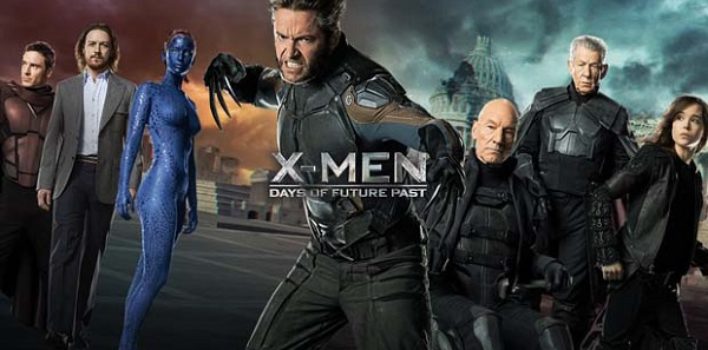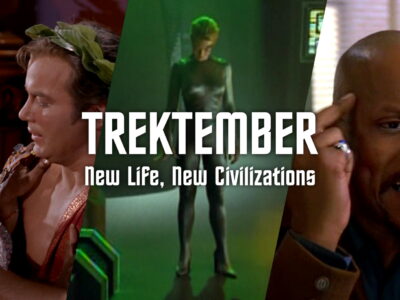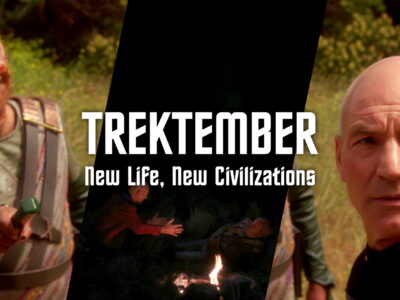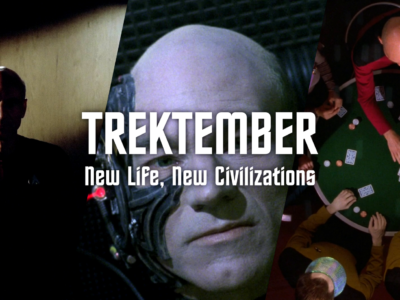Review| X-Men: Days of Future Past
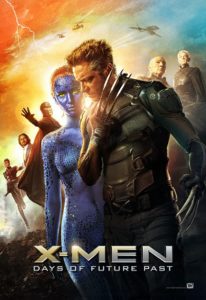 At the time of the release of Days of Future Past, Matthew Vaughn had successfully brought the franchise back from an unfortunate attempt at (what was to be) a string of ‘Origins’ stories after the bloated and off-putting X3: The Last Stand. Vaughn directed 2011’s First Class and succeeded in bringing a whole new cast together and revitalizing the X-Men. When it was announced that Bryan Singer, who directed the first two beloved X-Men films, would return to be the director of DoFP, the feeling was that the franchise was finally back in the right hands. And he didn’t disappoint.
At the time of the release of Days of Future Past, Matthew Vaughn had successfully brought the franchise back from an unfortunate attempt at (what was to be) a string of ‘Origins’ stories after the bloated and off-putting X3: The Last Stand. Vaughn directed 2011’s First Class and succeeded in bringing a whole new cast together and revitalizing the X-Men. When it was announced that Bryan Singer, who directed the first two beloved X-Men films, would return to be the director of DoFP, the feeling was that the franchise was finally back in the right hands. And he didn’t disappoint.
The film was quite ambitious in a couple of ways. Singer jumped back into the franchise to deal with a storyline that juggled time-travel, fate, free will, destiny, and self-sacrifice. These are heavy subjects to handle for any director. He was also tasked with crisscrossing the original cast of mutants with the new cast from First Class. We would see the likes of Halle Berry, Ellen Page, and Shawn Ashmore reprising their roles as Storm, Kitty Pryde, and Iceman. We also got Patrick Stewart and Ian McKellen playing the traditional Professor Xavier and Magneto, while James McAvoy and Michael Fassbender played their younger counterparts. While it did fall victim to some continuity errors that are somewhat inherent in these type of crossovers, I think the film did a great job of bringing together these two generations of mutants and linking them in a meaningful way. That link, of course, was provided by the seemingly ageless one; Wolverine.
This was Hugh Jackman’s seventh time playing the clawed anti-hero and were it not for the stakes involving the entire X-Men group, this might pass as another standalone Wolverine film for as much camera time is devoted to him versus every other character. The film opens with a time in the future when mutants are captured and restrained as common criminals. Even human beings giving aid to mutants are taken prisoner. It appears there is no hope to escape this fate and the age of mutants will be cut short. Professor Xavier (Patrick Stewart) is narrating this portion of the film when he asks a set of questions which will function as the focus which the film moves around; “Are we destined down this path? Destined to destroy ourselves? Or can we evolve fast enough to change our fate? Is the future truly set?” The events that follow prove that, whether or not their destiny is set in stone, they are certainly going to try and change it. Professor Xavier and Magneto have made peace with one another over the years. They now work together in search of a way to change their fate. They think they have found it in Kitty Pryde. Kitty has the ability to remove the conscience of an individual from them and transfer it backward in time into the same individual from the past. For the time, this is serving as the only means for a younger group of mutants to escape a sentinel army which can transform and take on the powers of any mutant they are fighting, rendering them basically unbeatable. Professor Xavier and Magneto see it as a way to travel to the one moment in time when this all went wrong and make the changes necessary so that the Sentinel army never comes into existence. Wolverine, with his self-healing abilities, is the only one who can sustain the physical told this takes on a person to travel back that far in time.
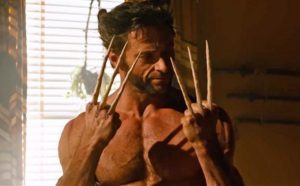 Logan awakes to an unsurprisingly awkward situation where he must dispatch of a few goons before embarking on his quest. We learn here that his claws are still his natural bones and he has yet to receive his adamantium skeleton. Logan proceeds to seek out the young Professor and convince him to join up with Erik Lehnsherr to stop Mystique from killing the man who created the sentinel program. As the film progresses we see young Charles Xavier refuse to face his past demons and try to remain secluded from the world. The betrayal of his friend in First Class and the events with wars following that have broken him. Logan must convince him that there is hope, which is an interesting position to have Wolverine in; the one advocating for hope. Throughout the rest of the film, there are moments when the concepts of fate and destiny are discussed, particularly in regards to a person’s free will choice. Mystique’s choice to kill Dr. Trask (Peter Dinklage) sets in motion the events leading to the dystopic future the movie begins with and becomes a defining characteristic for her. But, is that a choice that can be changed? Does Mystique have a libertarian free choice to not pull the trigger, or is this something she is destined to do? This discussion is front and center in one scene and is described in a fitting analogy by Hank McCoy.
Logan awakes to an unsurprisingly awkward situation where he must dispatch of a few goons before embarking on his quest. We learn here that his claws are still his natural bones and he has yet to receive his adamantium skeleton. Logan proceeds to seek out the young Professor and convince him to join up with Erik Lehnsherr to stop Mystique from killing the man who created the sentinel program. As the film progresses we see young Charles Xavier refuse to face his past demons and try to remain secluded from the world. The betrayal of his friend in First Class and the events with wars following that have broken him. Logan must convince him that there is hope, which is an interesting position to have Wolverine in; the one advocating for hope. Throughout the rest of the film, there are moments when the concepts of fate and destiny are discussed, particularly in regards to a person’s free will choice. Mystique’s choice to kill Dr. Trask (Peter Dinklage) sets in motion the events leading to the dystopic future the movie begins with and becomes a defining characteristic for her. But, is that a choice that can be changed? Does Mystique have a libertarian free choice to not pull the trigger, or is this something she is destined to do? This discussion is front and center in one scene and is described in a fitting analogy by Hank McCoy.
Hank McCoy: There’s a theory in quantum physics that time is immutable. It’s like a river; you can throw a pebble into it and create a ripple, but the current always corrects itself. No matter what you do the river just keeps flowing in the same direction.
Logan: What are you trying to say?
Hank: What I’m saying is, what if the war’s inevitable? What if she’s [Mystique] meant to kill Trask? What if this simply is just who she is?
Charles Xavier: Just because someone stumbles and loses their path, doesn’t mean they’re lost forever. No, I don’t believe that theory, Hank. And I cannot believe that is who she is.
Scripture presents two views on this topic of destiny or fate which on the surface may appear to be competing views. One view says that man makes free will decisions which affect who he is and how his life plays out. Each choice is freely his and he is free to choose otherwise. This is supported by the presence of middle knowledge and counterfactuals in scripture. David asked God what would happen given one choice or another (2 Sam. 23:9-13). Jesus said he spoke to them men of his day in parables because it was not yet time for them to know the mysteries of the kingdom of God, otherwise they would heart and turn to Him (Mt. 13:10-15), and if the people turned to Jesus they may not call for him to be crucified. And while God had determined that the Jews would be delivered from bondage in the days of Esther, Esther still had and an apparent choice to be used as a means to that deliverance (Esth. 4:13-14). For our characters in the film, particularly Charles Xavier, the idea of being able to help someone make a better choice was a source of great hope even in the face of great obstacles.
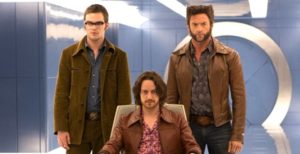 The flip-side of this discussion highlights the equally scriptural view that God is sovereign over his creation (Ps. 103:19) and that he has determined the beginning from the end (Isa. 46: 9-10). This includes not only such things as how many blades of grass are in a field or how many hairs are on your head, but the very choices of man. On this view, being sovereign often means meticulous determinism. Proponents of this view would even include the choice of specifically who is saved and who is damned to hell. Plenty of ink has been spilled on the comparison between these two views and which is scripturally correct. I won’t begin to get into that here, but the film is playing on the principles behind each of these positions. And where does the film land?
The flip-side of this discussion highlights the equally scriptural view that God is sovereign over his creation (Ps. 103:19) and that he has determined the beginning from the end (Isa. 46: 9-10). This includes not only such things as how many blades of grass are in a field or how many hairs are on your head, but the very choices of man. On this view, being sovereign often means meticulous determinism. Proponents of this view would even include the choice of specifically who is saved and who is damned to hell. Plenty of ink has been spilled on the comparison between these two views and which is scripturally correct. I won’t begin to get into that here, but the film is playing on the principles behind each of these positions. And where does the film land?
One of the problems with counterfactuals playing out practically is that we are limited in our knowledge to only that which has actually happened. Entertaining something that may happen if a different choice is made is little more than a mental exercise. We don’t have the ability to go back and change a choice to truly see an alternative path from what had actually happened. But, in the world presented in Days of Future Past, they do have that ability. So, entertaining that option through time travel and influencing a choice so that another path is chosen which changes the future that we actually knew, the film clearly falls within the first perspective laid out above. From a Christian perspective, we might look at that and wonder where God’s sovereignty is in this type of world, and in that belief system. As I mentioned, the latter perspective would reckon sovereignty as something like meticulous determinism. But that doesn’t need to be the case. A king is sovereign over his country, but he does not meticulously determine every detail in the lives of his people. In the case of God, one may think that belittles his power. Actually, the opposite is true. God is still sovereign; that is, his ultimate will still come to pass. Only now it’s in the face of those striving against him of their own will rather than God determining their will beforehand and causing his plan to materialize.
There is plenty more to be said on this topic and I have no doubt some will take issue with even my characterization with some things here. The point is that this film, seen by millions of people and impacting a wildly popular genre today, tries to examine topics which many wonder about in their lives and which Christianity has an answer for. We can look at specific events in the film, or positions the characters hold to, and see how they align with reality and what scripture says about how the world works. In the end, we’re passing an artistic medium through the filter of scripture to better examine how it’s effecting the beliefs that people hold and how we might show if those beliefs are true and right. That’s always a good discussion to have.


